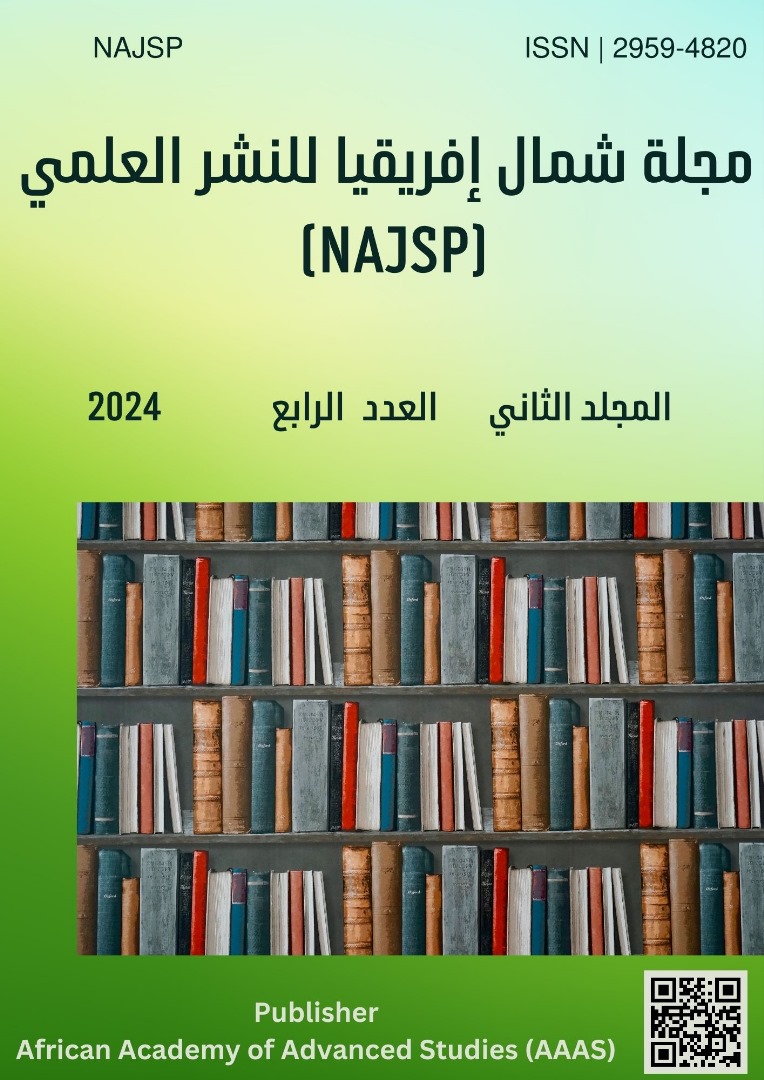The Physical and Chemical Properties Study to Evaluate the Quality of Bottled Drinking Water Offered in Misurata Markets
DOI:
https://doi.org/10.65414/najsp.v2i4.286Keywords:
Drinking water, Total dissolved salts, Total dissolved solids, Suspended solids, Total hardnessAbstract
This paper addresses the first biological liquid water, which facilitates the conversion of food into energy and acts as a conduit for the transfer of pollutants to and from the human body. The most significant distinction between bottled drinking water and water sourced from public networks is the quality of the former. This study aimed to analyses and evaluate the quality of bottled drinking water consumed in Misurata markets. A total of 12 samples of local and imported bottled water products were selected for analysis, with the chemical and physical properties of each sample evaluated. These properties included turbidity, The samples were analyzed for a range of chemical and physical properties, including colour, total dissolved salts, pH, electrical conductivity, ammonia, nitrate, nitrite, magnesium, bicarbonate, sulfate, sodium, calcium, total hardness, potassium, residual ozone. The results were then compared with the Libyan and international standard specifications for bottled drinking water, as well as the data provided on the packaging, in order to evaluate the quality of the samples. The results of the chemical analysis of total dissolved solids indicated that 50% of the samples were below the permissible limit set forth in the Libyan specifications. Conversely, the results of the other analyses demonstrated that they conformed to the aforementioned specifications. With regard to the data presented on the packaging, there were numerous discrepancies between the observed results and the information stated on the packaging.
Downloads
Published
How to Cite
Issue
Section
License
Copyright (c) 2024 Salem Embiriekah, EzeAlarab Ahwedg, Mohamed Elmalimadi, Nour Edin Elramalli, Suleiman Al-Zailiq, Suleiman Al-Ahrash, Mahmoud Safar

This work is licensed under a Creative Commons Attribution 4.0 International License.







